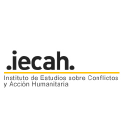WORKING WITH DG ECHO AS AN INTERNATIONAL ORGANISATION | 2014 - 2020
PROCUREMENT
In principle under the Financial Regulation, 2014, an International Organisation may apply its own procurement procedures, as assessed by the Commission in an ex-ante Pillars Assessment. The Pillars Assessment seeks to ascertain that the International Organisation's procurement procedure respect the principles of sound financial management, transparency and non-discrimination and generally guarantee safeguards equivalent to the Commission's own rules.
According to the EU's Rules of Application on the Financial Regulation, the Commission may accept that procurement rules and procedures are equivalent to its own if the following conditions are met:
a) they comply with the principle of broad competition of tenderers to obtain the best value for money, and negotiated [i.e. restricted participation] procedures are limited to reasonable amounts or are duly justified;
b) they ensure transparency with adequate ex ante publication, in particular of calls for tenders, and adequate ex post publication of contractors;
c) they ensure equal treatment, proportionality and non-discrimination;
d) they prevent conflicts of interests throughout the entire procurement procedure.
National law of EU Member States or third countries transposing Directive 2004/18/EC shall also be considered equivalent to the rules applied by the institutions in accordance with the EU's Financial Regulation.
In those rare cases where the International Organisation's procurement rules are not considered to be equivalent to the Commission's then the International Organisation would in practice need to agree up front on an ad hoc set of rules to apply.
If the results of the Pillars Assessment are still pending but the Commission has worked with the International Organisation previously in the past it may still be possible for the International Organisation to use its own procurement rules based on the “presumption of conformity”. If that is the case this will be expressly mentioned in the Special Conditions of the IMDA





